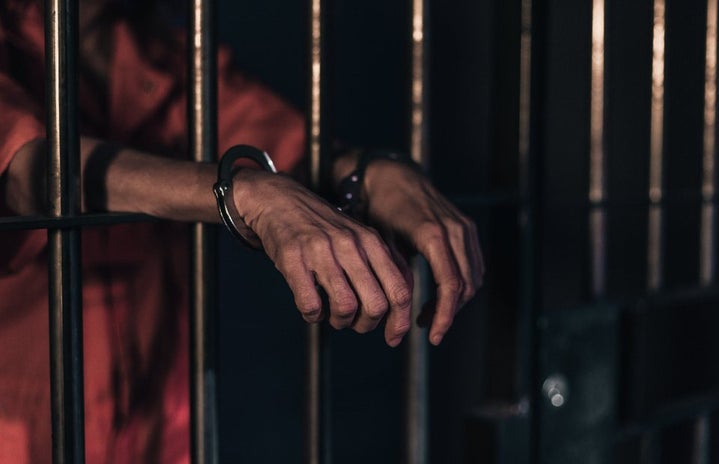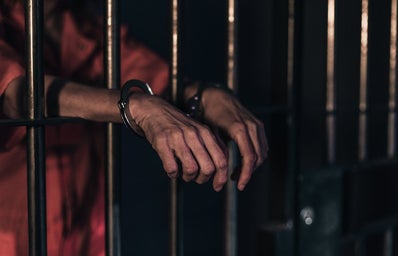In case you weren’t already aware, our justice system in America is unbelievably unjust. A mere Google search can present you with a multitude of similar articles that prove we need reform and we need it now. Unfortunately, much of our criminal justice system isn’t taught in school. Most of our opinions streamline directly from those around us. Our individual comfort causes us to neglect the needs of others. Believe me, I’m incredibly guilty of this as well.
Communities across the nation are entrapped in endless cycles of poverty. Some are subject to policies that have unfairly targeted minority groups throughout all of American history. Several ridiculous, Civil War era policies initially aimed at disenfranchising African Americans continue to prevail. Mass policing and mass incarceration often stem from racist ideologies and capitalize on those prejudices to control others. Our entertainment industry, which is filled to the brim with shows and movies depicting our broken justice system, has conditioned us to view criminals in a harmful light. This causes us to no longer care about their well-being as fellow humans.
Several years ago, I commenced a long and frustrating project of researching prisoners’ voting rights. The information I found was shocking and outraging. I had no idea they were not permitted to vote, and I had no idea that eleven states never restore this fundamental right upon full completion of an original sentence. There’s something seriously wrong here. Prisoners have a multitude of rights stripped from their lives as soon as they are convicted as guilty. Their eventual incarceration dehumanizes them further. Although they clearly made a mistake and deserve to pay the consequences, they should not be robbed of fundamental citizenship. This includes reserving the right to vote. I believe that all prisoners should be allowed to cast a ballot in all elections. Why, might you ask? Here’s some info you should know:
- Hundreds of thousands of Americans remain behind bars unable to express their voice in politics. What’s worse is that thousands of those who receive liberation never even gain their vote back.
- Our so-called “land of the free” is the land of the highest prisoner population per capita. In a nationwide consensus conducted in 2017, there were 2.4 million Americans incarcerated in state, federal, and private prisons collectively. This number in regards to the entire United States’ population equates to every one in a hundred adults serving time behind bars. A study in 2018 confirmed that four percent of prisoners on death row – equating to 120,000 inmates – are indeed not guilty. Imagine being behind bars for something you didn’t do…
- Regardless of the crime and original sentence, there are nearly two and a half million Americans unable to vote. Only two of our fifty states – Maine and Vermont – allow prisoners to cast ballots. Many of them vote absentee, even before the pandemic.
With any argument comes opposition. One must thoroughly acknowledge both sides and all pieces of the puzzle to properly formulate their own argument. While many believe prisoners deserve the right to vote and advocate on their behalf, others do not share the same opinion. Typically, the argument against prisoners’ voting rights revolves around two central claims: they are criminals that deserve punishment, and it is risky for them to vote.
Opposition 1: They are criminals that deserve punishment.
First and foremost, our opposers are correct: prisoners are criminals. They committed some sort of crime that is viewed so negatively and harmful that they need to be removed from society for a period of time. A similar claim the opposing side holds fast to reinforces that prisoners deserve punishment. They’re right again: committing crimes requires consequences. The government removes and/or restricts many basic rights during sentences: self-expression (through clothes and appearance), privacy, visitation, and free time, to name a few.
The idea of a “civic death” originated in ancient Greece and Rome. This disenfranchisement is the legal suspension of citizens’ rights while behind bars. However, our Federal Government has largely abandoned this concept over the past two decades. In 2000, prisoners’ full right to freedom of religion was restored in federal law. Prisoners also retain other First Amendment freedoms, including the freedom of speech, which includes the right to express political opinions. How can they fully express freedom of speech without the ability to cast a ballot?
America’s legal documents clearly write out freedoms that are available for all the country’s constituents: freedom of self-expression, freedom of religion, right to a prompt and fair trial of jury, right to apply for federal employment, right to run for elected office, and the right to vote in elections for public officials. All of these rights enhance the freedom of “life, liberty, and the pursuit of happiness” as the founders of this country intended. Among the responsibilities contain supporting and defending the Constitution, remaining informed on national events, participating in the democracy, respecting others, paying taxes, and serving jury duty. Several of these responsibilities such as staying informed and participating in the democracy cannot be properly upheld by prisoners. How can one participate in the democracy behind bars if they are prohibited to vote?
Opposition 2: It is risky.
Another challenger claims that prisoners’ right to vote is “risky, unnecessary, and unconscionable.” Unconscionable is defined as not right or reasonable. For whom is their vote risky: themselves or the country? Neither. What is truly unnecessary is that two and a half million votes – and counting – are continuously being lost in every election every year. Consequences are necessary, but they are still citizens; America is their country, too.
Supreme Court Justice Earl Warren declared in the Trop vs. Dulles case in 1958 that “citizenship is not a right that expires upon misbehavior.” The final court ruling from this major case concluded that citizenship cannot be revoked as a punishment for crime. While removing the right to vote does not fully equate to revoking citizenship, the basic right of casting a ballot in elections remains a significant part of citizenship and allows Americans to express their political voice in our democracy. Denying their constitutional right to vote violates the concept of self-government that the founders cherished.
Emotions and legalities aside, multiple statistics contribute to the proper demolition of these oppositions. It still takes up to two years to fully restore voting privileges upon liberation. Over fifty percent of felons (mainly those convicted of murder and sexual offense) never regain this right even after serving the full sentence and engaging in normal life again. Some of those permitted to cast ballots again find no desire to do so after prohibition for so long. Tom Dalton, an executive director for a Criminal Justice Reform organization, stated “we want those incarcerated to remain connected to the community and be civic-minded…so when they come out, they are interested in being productive members of society.” We’re not promoting their American citizenship by stripping them of the most fundamental right in this country. Rather, we are contributing to re-offenses and recidivism rates.
While the existence of civic participation for prisoners is largely refuted, it is rapidly gaining support. Voting plays a positive role in not only keeping inmates connected to their country and the rest of the world but also largely reduces re-entry. According to the NRRC, recidivism rates – the tendency of a convicted criminal to commit crimes again – range from fifty to sixty-five percent depending on the prisoner and re-offense. Assembly woman Shirley Weber introduced a prisoner voting measure in 2016, exclaiming to her colleagues in a heated floor discussion that “civic participation can be a critical component of re-entry and has been proven to reduce recidivism.”
I pray that these preceding paragraphs probe some righteous anger in you. I hope that you feel as bothered as I do. Perhaps these statistics and testimonies will propel you into action to help reform our flawed justice system. If nothing else, may this start to change your perception of prisoners. Remember that they are human beings and fellow citizens; treat them as such.


